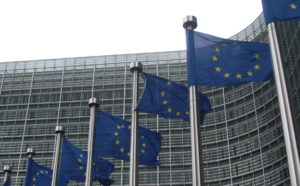 Brussels, May 20th, 2020 – “Only peaceful dialogue, not punitive measures, will move the peace process forward in the Middle East”, said ECI Founding Director Tomas Sandell on Tuesday in response to an earlier statement made by EU High Representative for Foreign Affairs, Josep Borrell, who has threatened to take “punitive measures” against Israel if the new Israeli government goes ahead with its plans to annex Jewish communities in Judea, Samaria and the Jordan valley.
Brussels, May 20th, 2020 – “Only peaceful dialogue, not punitive measures, will move the peace process forward in the Middle East”, said ECI Founding Director Tomas Sandell on Tuesday in response to an earlier statement made by EU High Representative for Foreign Affairs, Josep Borrell, who has threatened to take “punitive measures” against Israel if the new Israeli government goes ahead with its plans to annex Jewish communities in Judea, Samaria and the Jordan valley.
“In order for the European Union to play a pivotal role in the peace process, it needs to engage constructively with all partners in the region, including Israel”, Sandell added.
“The most effective way for the EU to promote peace in the region is to immediately make the funding to the Palestinian Authority conditional on respecting the Oslo Accords and fundamental universal values, including the need for peaceful co-existence with the Jewish state. And there can be no peace in the region as long as the institutionalized incitement to hatred and violence continues in Palestinian schools”, he explained.
In a resolution passed by the Budgetary Control Committee of the European Parliament last week, the parliament expressed similar concern as they pointed to the “problematic content” within the Palestinian textbooks which are in fact funded by the EU. In a separate chain of events earlier in the week, the EU Representative to the Palestinian territories, Sven Kuehn von Burgsdorff, came under harsh criticism after it was revealed that he had raised no objections to people affiliated with Palestinian terrorist groups from participating in EU-funded activities. In an open letter to the EU High Representative, a cross-party political delegation of MEPs condemned Burgsdorff’s statement as a violation of EU policy and demanded an investigation.
“As the single largest financial contributor to the Palestinian Authority, the EU can play a central role in promoting positive values that would undergird peace and understanding in the region”, Sandell explained further. “And it is the lack of such education in general that threatens the current peace process, not the Israeli plans to extend civil law and administration to 30 percent of Judea and Samaria which, according to the Trump peace plan, would remain within Israel after a final peace agreement.”
Israel has valid historical and legal claims to these territories which need to be taken into consideration in the future peace negotiations. In this respect the US sponsored peace plan offers a unique opportunity to resume the peace talks and bring the parties back to the negotiating table at an unprecedented time of rapprochement between Israel and many of its former enemies in the Arab world.
“It is only through peaceful dialogue and negotiations that we can move closer to peace within the region”, Sandell concluded.
Israel´s parliament approved on Sunday Prime Minister Benjamin Netanyahu’s new unity government, ending more than a year of political deadlock after three inconclusive elections. Under the power sharing agreement Netanyahu will remain Prime Minister for 18 months before handing over to Blue and White leader Benny Gantz.
